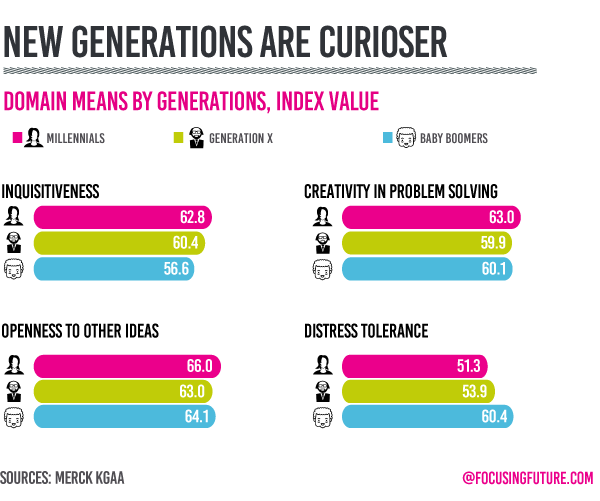![]() 6 minute read
6 minute read
Science plays an important part in leading technological innovations. How will theoretical physics and scientist celebrities push innovation forward? More importantly, the increase in popularity of science-related media provides a clear insight into how the future society will think and act.
Why science at all?
Can Physics explain everything? Scientists who are pursuing the ’theory of everything’ seek to do just that. The[nbsp]Final Theory is expected to answer one of the most important: whether there is a master theory that can explain the universe. This has resulted in the birth of numerous theories such as String theory, the M-theory and the loop quantum gravity theory. However, none has managed to explain everything. Einstein, for example, spent 30 of his last years trying to find the master laws and failed to do so. Many of the world’s most famous scientists have dedicated themselves to formulating a model which could cover the gaps of the previous findings.
It is important to note why finding this theory and, in general, focusing on physics is important for the future. Nobel laureate, Frank Wilczek, insists that physics trains humans to discipline their imaginations. Hence, it redirects efforts and energies to focus on endeavors that are both achievable and fruitful. In this way, the theory of everything furthers understanding of how the world works and how to make the most use of its laws and properties.

The increasing efforts can be seen as part of the greater trend of curiosity. At large, people are growing curious and need facts, information and statistics to cater to these interests. As one of the curiosity surveys shows, Millennials desire knowledge and understanding way more than previous generations. This is translating into AI design which is constantly optimizing the ability to implement more of curiosity-driven ideas.
Predicting AI behaviour
with cosmology
Dr. Alex Wissner-Gross, a physicist at Harvard, has proposed the Maximum Causal Entropy Production Principle which insists that any agent will act to ensure its maximum freedom in the future. The idea stems out of the Casual Entropic Principle of Raphael Bousso which claims that universes with more entropy, or chaos, have a higher probability of intelligent life. Wissner-Gross goes a step further and insists that intelligence could actually be emerging out of chaos and not just correlate to it. To test this claim, he along with his MIT colleague Cameron Freer, created a software engine called ‘Entropica’. With this software, they were able to observe that even without any set goals and in the presence of maximum chaos, the software ended up behaving intelligently. If the principle is widely established, it does provide a roadmap on how artificial intelligence will learn and reprogram itself to become increasingly intelligent and place itself in a state where its future options are maximized. In the video presenting Entropica’s behaviour, Wissner-Gross predicts that this principle can be used in building intelligent software for social networking, military deployment, manufacturing, financial investments and indeed, computing an intelligent AI.
Entropica has since been formed as a startup and seeks to establish the recognized Principle in AI construction and manufacturing. It provides an important vintage point towards understanding how AI will function and how it can be controlled. If established as an authority on how machines work, future IT specialists will have to shape the environments of AI to exploit this trait while simultaneously staying conducive to human development.
Science in pop-culture:
a prediction of
how people will think
Science today has made it to popular culture and this is an important prediction on how our future society will act and think. Besides generating some of the biggest box-office returns, movies like Interstellar, Tomorrowland and Aloha are also criticizing the budget cuts to science facilities by the government. Similarly, one of the biggest, most popular shows on TV is The Big Bang, a comedy on physicists. The show covered and won several demographic groups: teens 12–17, adults 18–34, adults 18–49, and adults 25–54. Moreover, there is an increasing presence of celebrity scientists who are seen rubbing shoulders with the leading Hollywood stars and are frequently invited on prime-time late night shows.
Another example is the spread of museums and their highlighting in most tourist spots around the world. Heritage and culturally related sightseeing invite a big number of tourists who like to indulge in information-oriented tours. The traffic stands witness to the rising trends. For example, Musée du Louvre had 7.4 million visitors in 2016 alone. Similarly, heritage tourism alone contributed £20.6 billion to UK’s GDP, a lot more than either advertising or the film industry. In the US, the cultural industry is worth $192 billion. All this reflects that there is an increased demand for information triggered by a general social curiosity.
Winning audience
by entertaining approach
Wired.com calls this age as the golden age for pro-science pop culture. According to Brian Cox, a physicist at University of Manchester and one of the scientists working in CERN, insists that ‘Science is too important not to be a part of popular culture’. His program, the Wonders of the Universe, was initially given very optimistic 2-2.5 million viewers by BBC before the series was broadcasted. However, in actuality, 6 million Britons viewed his series, prioritizing watching it over their other Sunday programs. As a result of his presentation, Britain has seen the ‘Brian Cox effect’, whereby, besides increasing popularity of other science-themed shows, Universities experienced a 52% increase of physics admissions between 2008 and 2012.
Similarly, the reincarnated Cosmos series presented by Neil Degrasse Tyson, was the most watched series of National Geographic ever. Over 135 million viewers watched the series, over 180 countries. These trends towards embracing science, meshing it with pop culture and eventually making it part of one’s life is an important trend to recognize. The future generations will depend on information that is backed by data. Programs such as those Wonder of the Universe and Cosmos are an extension of this trend towards demanding factual foundations on arguments. In other words, the future world will not be satisfied with superficial information but will need a thoroughly elaborated set of arguments to be convinced. This trend gives companies a heads-up on how to formulate their future marketing campaigns and how to design customer oriented experiences.




